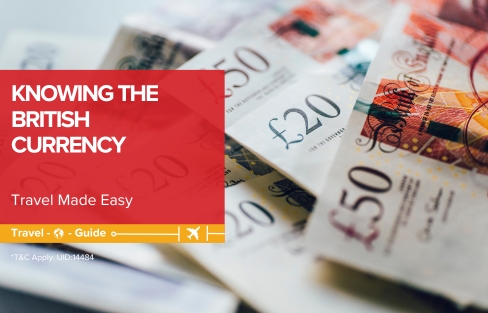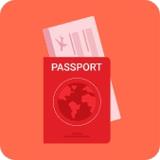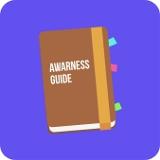

Currency in The UK
- Introduction
- Currency
- Needs
- Acquisition
- Money saving tips
- Accepted Payment Methods
- Using INR in the UK
- Conclusion
- FAQs
The British Pound Sterling, sometimes known as the pound (£) or GBP (Great British Pound), is the currency of the United Kingdom (UK). Since the 17th century, it has served as the official currency. The pound is subdivided into 100 smaller parts known as pence (plural: penny). For regular transactions, banknotes and coins are utilised.
Banknotes represent historical individuals, landmarks, and significant symbols of the United Kingdom. Coins are available in a variety of denominations and sizes, with distinct designs reflecting various regions of the United Kingdom.
What is the currency of The UK?
A Quick tip for first-time visitors:
- Learn the meaning of "pence" before you go shopping. Although the British Pound Sterling (GBP) is the country's official currency, prices for goods and services are frequently given in both pounds and pence. Consider that one pound is equal to 100 pence.
- Make the most of your savings in the UK by choosing cashless transactions wherever you can. To conveniently manage spending and take advantage of convenience in transactions, use contactless cards or mobile payment apps.
The British Pound Sterling, sometimes known as the pound (£) or GBP (Great British Pound), is the currency of the United Kingdom (UK). It has been the official currency of the United Kingdom for centuries and is vital to the country's economy and financial system. The pound is divided into 100 smaller parts known as pence (plural: penny).
The pound's value fluctuates in global currency markets, affecting trade, investments, and the country's general economic well-being. While there have been discussions about adopting the Euro (€) as the official currency in the past, the United Kingdom has elected to keep its pound.
Why do I need to have The UK currency?
Did you know?
- Did you know that some local markets and small businesses in the UK may provide discounts for cash transactions? When travelling, using UK currency can help you take advantage of untapped savings opportunities.
- Did you know that transferring your money for British pounds can help you travel responsibly? Utilising the British Pound Sterling (GBP) to patronise regional businesses promotes a more environmentally friendly travel experience while also preserving the local economy.
Having UK money, British Pound Sterling (GBP), is necessary for a number of reasons, particularly if you are travelling or residing in the United Kingdom. This is why:
- Legal Tender: GBP is the UK's official legal tender. It is widely accepted for all transactions, including shopping, dining, transportation, and other services. Using the local currency guarantees that transactions go smoothly and without incident.
- Convenience: Using the local currency makes daily tasks easier. It removes the need for continual currency conversion and decreases the possibility of misunderstandings or errors.
- Broader Acceptance: While electronic payment methods are increasingly widespread, cash is still extensively used, particularly for modest transactions, tips, and in select businesses. Carrying GBP guarantees that you are ready for any payment scenario.
- How to Avoid Cash Conversion Costs: Converting your own cash to GBP can result in costs and unfavourable exchange rates. Using GBP directly saves you money in the long term by avoiding these extra charges.
- Cultural Experience: Using the local currency might be considered part of the cultural experience. It connects you to the country's history and identity, allowing you to participate more fully in local customs and traditions.
- Interaction with Locals: Using local cash can make it easier to interact with locals. It demonstrates respect for their traditions and allows you to fit in more effortlessly, resulting in more authentic and meaningful encounters.
- Emergency Situations: Having GBP on hand can be a lifesaver in situations where electronic payment alternatives are unavailable. It guarantees you rapid access to funds when needed.
- Transport: When using public transport or taxis, cash may be the most convenient way to pay. Having GBP ensures that you can easily navigate the transport system.
How to acquire UK currency?
Important tip:
- To save withdrawal fees, use ATMs affiliated with trustworthy banks. In order to lessen the overall impact of ATM fees throughout your visit, choose to withdraw more money in fewer transactions.
- Foreign cardholders pay a variety of ATM fees. Banks may impose a flat fee per withdrawal (for example, £2.50), a percentage of the withdrawal amount (for example, 3%), or both.
Acquiring UK currency, British Pound Sterling (GBP), includes a few simple steps to guarantee you have the necessary currency while visiting or residing in the United Kingdom:
- Currency Exchange: Before visiting the UK, exchange your home currency for GBP at a bank, currency exchange office, or online currency conversion platform. To obtain the best price, compare rates and fees.
- ATMs: Withdrawing cash from ATMs is a straightforward way to obtain GBP once in the UK. ATMs are generally available, and major international debit and credit cards are accepted. However, keep in mind that your home bank may charge fees for overseas ATM withdrawals.
- Banks and Building Societies: Go to your neighbourhood bank or building society to exchange money or withdraw cash. Some banks provide currency exchange services to their customers.
- Currency Exchange Bureaus: These specialised firms, which are commonly found in tourist regions, airports, and shopping malls, provide currency exchange services. While it is convenient, be mindful of the possibility of higher costs and less favourable exchange rates.
- Online Currency Exchange: You can order GBP online and have it delivered to your home or pick it up at a local bank. This is especially beneficial if you prefer to have cash on hand prior to your vacation.
- Credit and Debit Cards: In the United Kingdom, major credit and debit cards are widely accepted. Card payments can help to reduce the need for cash. Notify your bank of your travel plans, however, to avoid card blocking due to suspicious activity.
- Traveller's Cheques: While traveller's cheques are less prevalent anymore, they can be converted into GBP at banks or currency exchange bureaus. Keep in note that the acceptability of traveller's checks varies.
- Prepaid Currency Cards: These cards can be filled with GBP prior to your journey and used in the same way that a debit card would. They provide the ease of using plastic while avoiding foreign transaction fees.
- Currency Swap with Locals: If you have contacts or friends in the UK, you might arrange a currency swap with them in which you trade your local money for GBP.
Tip: Compare exchange rates from trustworthy sites before making a currency exchange online. For rates that are affordable and transparent fees, think about utilising Revolut or Wise (previously TransferWise).
Quick note: Before trading, make sure to keep an eye on GBP to INR exchange rates. If 1 GBP were equal to 100 INR, for example, exchanging £100 would give you 10,000.
Tips to save money when in The UK?
Do consider:
- If you want to reduce your expenses, choose low-cost housing options like hostels, guesthouses, or Airbnb rentals.
- For local transport, purchase travel cards. Discounted rates for buses, trains, and the Underground are available with the Oyster card in London and various comparable choices in other cities.
- Rather than taking a taxi, choose public transport like buses and trains or use contactless payment options.
- Explore the many free attractions available in cities, such as parks, museums, and galleries, to learn about culture and history without having to spend money.
- To enjoy delicious food at a lower price, look for lunchtime or early bird meal specials at restaurants and cafes.
- Shop at local markets for fresh produce, snacks, and unique souvenirs, often at more budget-friendly prices than in touristy areas.
- Consider staying in budget accommodations like hostels or guesthouses, and use platforms like Airbnb to find affordable lodging options.
- If your accommodation allows, cook some of your meals to save on dining expenses.
- Invest in discount cards or city passes that offer reduced rates on attractions, transportation, and activities.
- If you're a student, take advantage of student discounts available at many museums, theatres, and shops.
- Join free walking tours in cities to learn about local history and culture from knowledgeable guides.
- Utilize cashback apps, loyalty programs, and discount coupons for shopping and dining.
- Explore thrift stores and second-hand shops for clothing, books, and other items at a fraction of the price.
- Drink tap water, which is safe and readily available, to avoid spending on bottled water.
Take into account this useful advice to save money while visiting the UK:
Travel tip: Take advantage of city packages that provide packaged discounts on attractions, transport and tours, such as the Edinburgh City Pass and London Pass.
Travel tip: Remember to ask for student discounts at eateries like Pret A Manger, PizzaExpress, and Wagamama if you're a student. Student IDs may result in substantial savings.
What are the payment methods accepted in THE UK?
Did you know?
- The UK was one of the first countries to implement contactless payment methods. Widespread payment methods include contactless cards and mobile payments, which make it possible to make payments instantly and conveniently without having to insert a card or enter a PIN.
- Cash: British Pound Sterling (GBP) is widely accepted. Cash is commonly used for small transactions, tips, and in certain establishments.
- Debit and Credit cards: Major credit and debit cards (Visa, MasterCard, American Express, etc.) are widely accepted in shops, restaurants, hotels, and attractions. Contactless payments are also prevalent, allowing you to simply tap your card on a reader for quick transactions.
- Mobile payments: Mobile wallet apps like Apple Pay, Google Pay, and Samsung Pay can be used at many retailers, allowing you to pay using your smartphone.
- Online and Card Payments: E-commerce is popular in the UK, with online payments being a common method for shopping, bill payments, and services.
- ATMs: ATMs (cash machines) are easily accessible and accept international cards for cash withdrawals. However, some ATMs may charge fees, so it's wise to check with your home bank for any additional charges.
- Cheques: While less common, personal cheques are accepted in some places, though electronic payment methods are generally preferred.
- Contactless Payment Cards: Contactless debit and credit cards allow you to make small purchases by simply tapping your card on a payment terminal.
- Travel Money Cards: Prepaid travel money cards can be loaded with GBP before your trip and used like a debit card.
- Bank Transfers: For larger transactions or bills, bank transfers or direct debits can be set up for convenience.
- Currency Exchange Bureaus: Currency exchange offices offer services for exchanging foreign currency for GBP.
- Traveller's Cheques: While less popular, traveller's cheques can be exchanged at banks or currency exchange bureaus.
The United Kingdom (UK) offers a range of payment methods for both residents and visitors:
Can I use INR in The UK?
Did you know?
- Higher denomination banknotes (such as the 500 and 2,000 INR notes) may frequently provide somewhat better conversion rates when converting INR to GBP than lower denominations. However, it may fluctuate depending on elements like the state of the market at the time and the rules of the exchange service you're using.
No, Indian Rupees (INR) are not accepted as a form of payment in the United Kingdom (UK). The official currency of the UK is the British Pound Sterling (GBP), and all transactions are conducted in GBP. If you are travelling to the UK, it is recommended to exchange your INR for GBP before your trip or upon arrival. You can exchange currency at banks, currency exchange offices, or ATMs in the UK. Using GBP will ensure that you can easily and smoothly engage in transactions, pay for goods and services, and navigate various payment scenarios during your time in the UK.
Conclusion
In conclusion, navigating currency and payment methods in the UK is integral to a smooth and economical experience. The British Pound Sterling (GBP) is the official currency universally accepted for transactions. While digital payment options are prevalent, carrying GBP in cash offers flexibility, particularly for small purchases and in certain settings. Being well-prepared with local currency and comprehending payment alternatives ensures an enriching encounter with the UK's culture and offerings.
Faqs
1. Are there any fees for using foreign cards at ATMs in the UK?
Yes, some ATMs might charge foreign cardholders fees for cash withdrawals. Check with your home bank for details about international ATM usage fees.
2. Should I carry cash or rely on cards in the UK?
It's advisable to carry a mix of both. Cards are widely accepted, but having some GBP in cash is useful for smaller purchases, tips, and establishments that prefer cash.
3. Are there any scams related to currency exchange I should be aware of?
Be cautious of unofficial currency exchange providers offering unusually high rates. Stick to reputable banks, exchange bureaus, or ATMs to avoid potential scams and ensure fair rates.
4. Are there any restrictions on bringing GBP into the UK?
There are no restrictions on bringing GBP into the UK. You can carry any amount of British Pound Sterling without needing to declare it.








 Health Insurance
Health Insurance  Travel Insurance
Travel Insurance  Car Insurance
Car Insurance  Cyber Insurance
Cyber Insurance  Critical Illness Insurance
Critical Illness Insurance
 Pet Insurance
Pet Insurance
 Bike/Two Wheeler Insurance
Bike/Two Wheeler Insurance  Home Insurance
Home Insurance  Third Party Vehicle Ins.
Third Party Vehicle Ins.  Tractor Insurance
Tractor Insurance  Goods Carrying Vehicle Ins.
Goods Carrying Vehicle Ins.  Passenger Carrying Vehicle Ins.
Passenger Carrying Vehicle Ins.  Compulsory Personal Accident Insurance
Compulsory Personal Accident Insurance  Travel Insurance
Travel Insurance  Rural
Rural 










